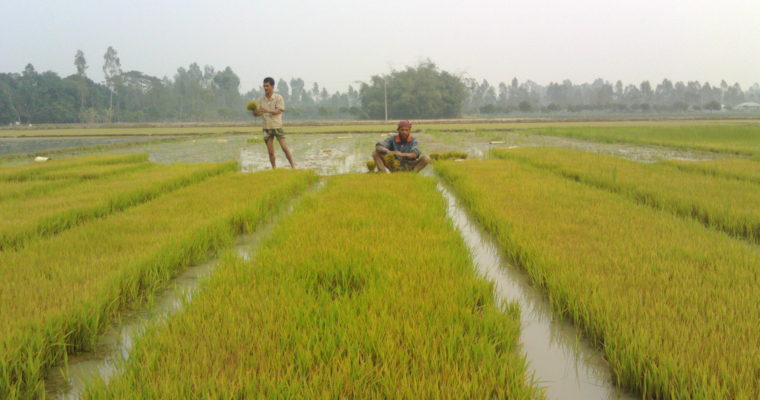At the APAARI and CoSAI Dialogue on the innovation investment landscape and future food systems in the Asia Pacific, Ms. Esther Penunia, AFA Secretary-General called for a food system that ” emphasizes the need for investments in agriculture innovation that are farmer-centric and inclusive.”
On September 28, 2021, the Asia-Pacific Association of Agriculture Research Institutions (APAARI) and CoSAI hosted the first dialogue, in an ongoing series, focussed on the innovation investment landscape and future food systems in the Asia-Pacific.
In her short message, Ms. Penunia stressed that investments should not only target the small scale farmers but include them, through their farmers organizations, associations and cooperatives, in the design, implementation and governance of the investment and in the agriculture innovation itself.
The dialogue brought together a diverse range of stakeholders from Europe, Asia, and the Pacific to discuss innovation investment in the Asia-Pacific. The dialogue took the foundations of the recent study and focussed the discussion on partnership for innovation, capacity development for innovation, and the innovation enabling environment. With a rich diversity of stakeholders present at the dialogue, various viewpoints were put forward to inform the discussions. Viewpoints came from development banks, regional organizations, educational institutes, research bodies, and farmer organizations, among others. They contributed to numerous important messages making condensing such a rich dialogue difficult.
Here is a full transcript of AFA Secretary General’s message at the Innovation investment landscape and future food systems in Asia Pacific Dialogue:
Thanks for the question. And good afternoon to everyone. Thanks for inviting us to share the perspective of farmers organizations on financing for agri innovations.
To answer your question, let me cite another important research whose report was released last year. It is called CERES 2030: Sustainable Solutions to End Hunger. The report, done by Cornell University, International Institute for Sustainable Development (IISD) and International Food Policy Research Institute (IFPRI), concluded that a world without hunger by 2030 is possible. But to do this, we need to invest additional $33B a year, aside from the current investment of $12B a year, along with ten recommendations categorized into three aspects:
Aspect 1 : Empower the Excluded by
- Enable participation of farmers organizations
- Invest in vocational programs for rural youth that offer integrated training in multiple skills
- Scale up social protection programs
Aspect 2: On the Farm
- Investment in extension services, particularly for women, must accompany research and development programs
- Agricultural interventions to support sustainable practice must be economically viable to farmers
- Support adoption of climate resilient crops
- Increase research on water scarce regions to scale up effective farm level interventions to assist small scale producers
Aspect 3 : Food on the Move
- Reduce post harvest losses by expanding the focus of interventions beyond the storage of cereals, to include more links in the value chain, and more food crops.
- Invest in infrastructure, regulations, services and technical assistance needed to support SMEs in the value chain.
Armed with this finding, we would like to propose that the COSAI report emphasize that investments in agriculture innovation should be farmer centric and inclusive ; that it not only target the small scale farmers but include them, through their farmers organizations, associations and cooperatives, in the design, implementation and governance of the investment and in the agriculture innovation itself. Top-down approaches need to be changed into participatory researches with both family farmers as para-scientists and the professional scientists such as the farmer field schools, more in-situ researches with farmer technicians , investing in farmer extensionists such as FOs running learning and earning farms.
Our member in Cambodia, for example, has experimented the practice System of Rice intensification through in situ farming, establishing learning circles at commune, district and national levels, with technical assistance from a local NGO and local research institutes.
They started with 20 practitioners, but after a decade, had 200,000 farmers practicing SRI at various degrees. The increase in production and incomes has made SRI part of the national rice policy of the Cambodia government.
Now, members of the organization also do multipurpose kitchen gardens, plus fishponds, plus raising organic pigs and chickens and cows, whose manures enable them to have bio-gas, plus trees for mulching and flowers to attract bees for pollination. And they have established a cooperative of organic rice farmers who go into rice milling, packaging and direct selling to consumers. And they have formed their young farmers and women farmers committees within their organization.
In conclusion, We are concerned not only with the money, but where will the money flow, who decides what to do with the money? And going back to the food systems, in the food systems summit, there is a strong clamor that food systems should be inclusive, equitable and empowering to the people- including family farmers, for people, planet and prosperity.




Comments are closed